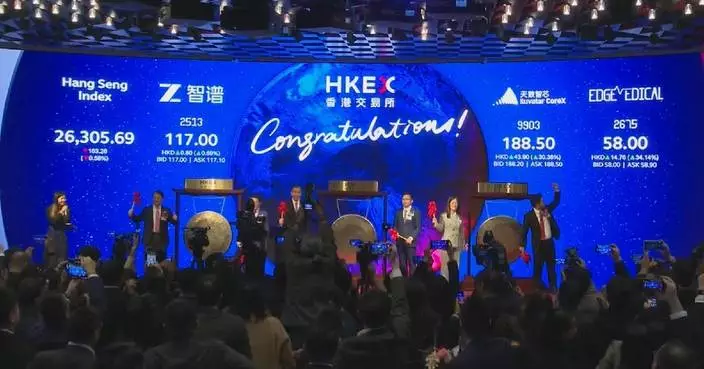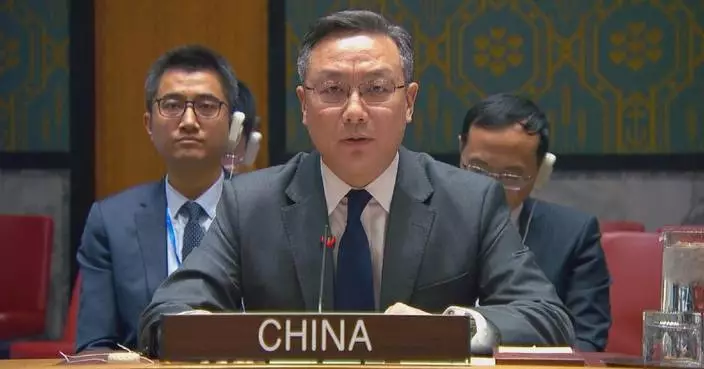Feature · News

U.S. quits 66 int'l organizations under Trump's order

T-wolves hold a pregame moment of silence for Renee Good, the woman fatally shot by an ICE officer

Futuristic potential of AI applications highlighted at top tech show in Las Vegas
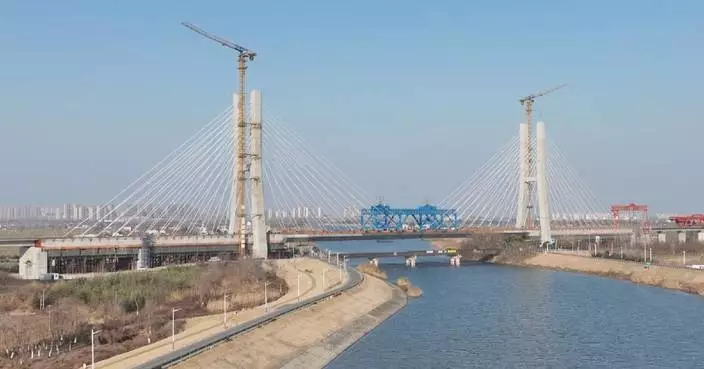
High-speed railway linking Shanghai, Nanjing, Hefei sees new construction progress

US Supreme Court to rule on legality of Trump tariffs
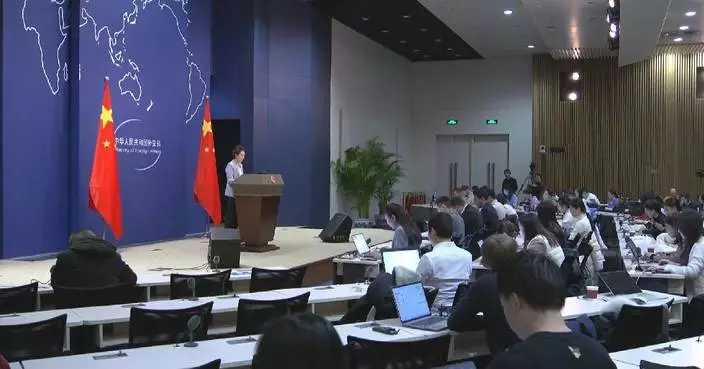
China ready to deepen cooperation with Venezuela amid evolving political situation: spokesperson
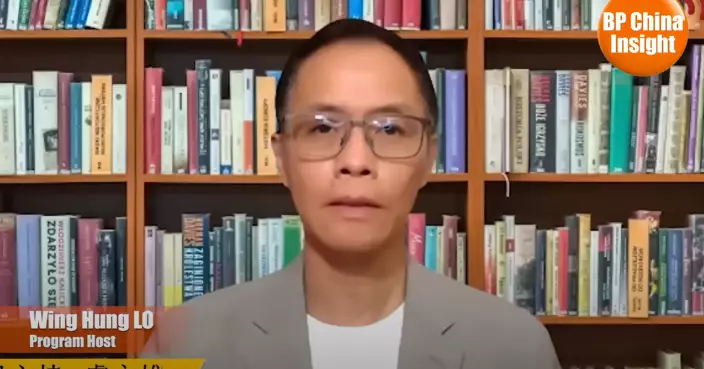
BP China Insight: Lee Jae-myung Finds Korea's Soul in China: Anti-Japan Ties Revived

BP China Insight: Danish MP: America's targeting of Greenland will only push Europe towards China
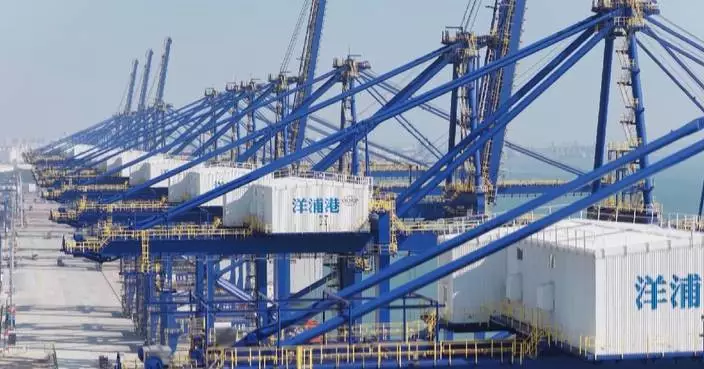
China's Yangpu Port beats annual targets as container throughput jumps 65 pct in 2025

Chinese smart travel products shine at CES 2026 in Las Vegas

Immigration Department Arrests 12 Illegal Workers in Territory-wide Operations Contribute, Twilight, and Flabbergast
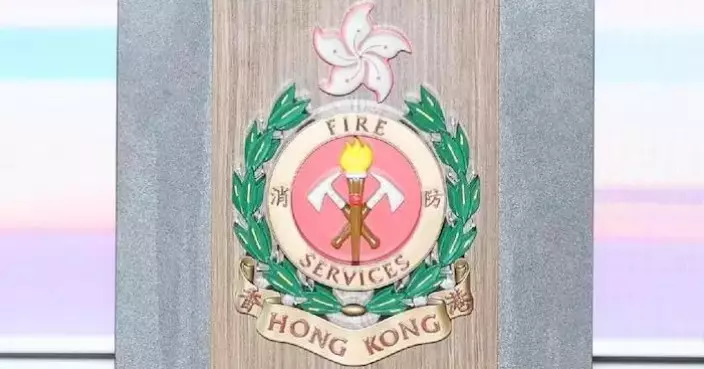
FSD Implements New Regulations for Enhanced Fire Safety Transparency and Management

A Fire Broke out in Lam Tin Estate, Suspected to be Caused by a Short Circuit

PolyU research teams and startups shine at CES 2026, winning three prestigious innovation awards
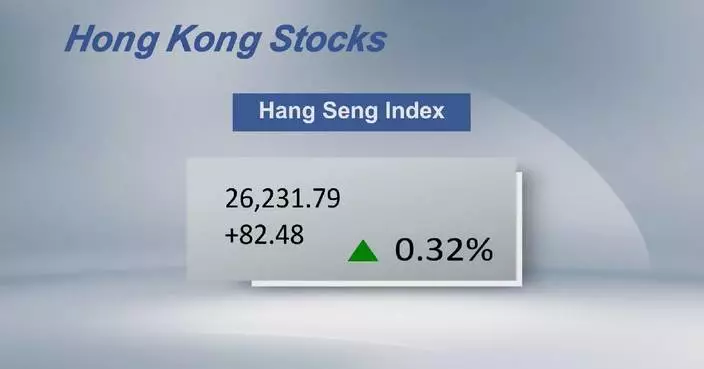
Hong Kong stocks close higher Friday
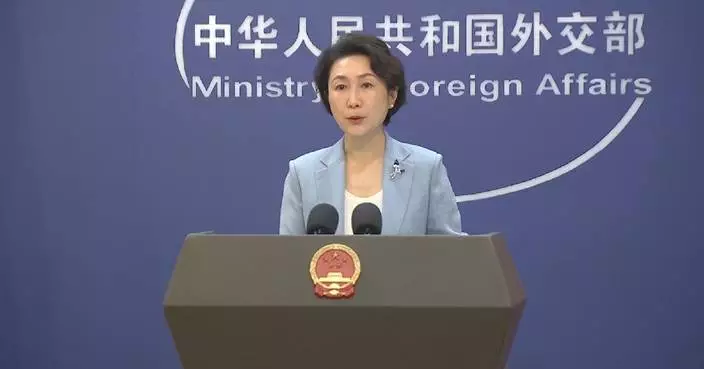
China, African Union to explore full potential for practical cooperation: spokesperson

BP China Insight: Lee Jae-myung Finds Korea's Soul in China: Anti-Japan Ties Revived

BP China Insight: Danish MP: America's targeting of Greenland will only push Europe towards China
China's Yangpu Port beats annual targets as container throughput jumps 65 pct in 2025
Chinese smart travel products shine at CES 2026 in Las Vegas
U.S. quits 66 int'l organizations under Trump's order

T-wolves hold a pregame moment of silence for Renee Good, the woman fatally shot by an ICE officer
Futuristic potential of AI applications highlighted at top tech show in Las Vegas
High-speed railway linking Shanghai, Nanjing, Hefei sees new construction progress
US Supreme Court to rule on legality of Trump tariffs
China ready to deepen cooperation with Venezuela amid evolving political situation: spokesperson

Immigration Department Arrests 12 Illegal Workers in Territory-wide Operations Contribute, Twilight, and Flabbergast

FSD Implements New Regulations for Enhanced Fire Safety Transparency and Management

A Fire Broke out in Lam Tin Estate, Suspected to be Caused by a Short Circuit

PolyU research teams and startups shine at CES 2026, winning three prestigious innovation awards
Hong Kong stocks close higher Friday
China, African Union to explore full potential for practical cooperation: spokesperson
Feature·Bloggers

【What Say You?】Trump’s “Maduro Grab” Gets a Glossy Spin by the Usual Suspects

【What Say You?】Trump's Judicial Theater: Maduro's Fate Already Sealed

【Deep Throat】Trump's Venezuelan Oil Grab: Big Oil Not Playing Along?

The Most Laughable Lie of the New Year: Jimmy Lai's "Grave Illness" Falls Apart Under Five Hard Facts

【What Say You?】Black Riots “comrades” Thought Ukraine Was Another “Resistance”—Then the Contract Hit

【Bastille Commentary】Green Nails? The Lie No Lawyer Would Touch

Hennepin County prosecutor calls on the public to share Renee Good shooting evidence with her office
- Trump meets with oil executives at the White House on Friday, seeking investments in Venezuela
- Wall Street rises toward records following mixed data on the job market
- The Latest: Minnesota prosecutor asks public to share Renee Good shooting evidence with her office
- Newsom faces another multibillion-dollar budget shortfall in his last year as California governor
- The Latest: US military says its forces intercept another sanctioned oil tanker in the Caribbean
- A use-of-force review board clears the officer who fatally shot Ta'Kiya Young and her unborn child
- Swiss bar owner put in pre-trial detention over the fatal fire at an Alpine resort
- Minneapolis schools will offer remote learning amid federal immigration enforcement
- Judge dismisses Salt-N-Pepa's lawsuit to reclaim master recordings from Universal Music Group

EU, Finnish officials express concerns over US remarks on Greenland
- China’s 2026 consumption season fuels holiday shopping boom nationwide
- Venezuela's acting president says country not "subjugated" after U.S. assault
- Over 200,000 Macao, HK vehicles registered for direct travel to mainland
- Lebanon residents say Israeli airstrikes are destroying their lives
- CMG unveils 2026 flagship drama lineup
- Chinese robot makers gain global attention at top tech show in Las Vegas
- AI listings boost Hong Kong market as Tokyo stocks rally on earnings: analyst
- 2026 Beijing Book Fair opens
- China stock markets wrap up buoyant first week of 2026: CGTN market analyst

ApexVision Debuts at CES 2026: Guide Sensmart Ushers in the Ultra-Clarity Era of Thermal Imaging
- Italy gives key support to EU trade deal with South American nations
- Iran supreme leader signals upcoming crackdown on protesters 'ruining their own streets' for Trump
- Sluggish hiring closes out a frustrating year for job seekers though unemployment slips to 4.4%
- TCL Earns Multiple CES 2026 Awards for Breakthrough Innovations Across TV, Mobile, and Smart Home Categories
- Luigi Mangione in court as he fights to block death penalty, murder charge and key evidence
- GM hit with $6 billion in charges as EV incentives cut and emissions standards fade
- Meta lines up massive supply of nuclear power to energize AI data centers
- Darts phenom Luke Littler signs sponsorship deal worth a reported $27M
- Photos show snow and ice hitting parts of Europe

Some flu measures decline, but it's not clear this severe season has peaked
- Takeaways from AP reporting on Trump administration cuts affecting US water systems
- Poor communities threatened by aging sewers see crucial aid slashed under Trump
- Musk's Grok chatbot restricts image generation after global backlash to sexualized deepfakes
- NASA, in a rare move, cuts space station mission short after an astronaut's medical issue
- 'Worst in Show' CES products include AI refrigerators, AI companions and AI doorbells
- How Americans feel about crowdfunding websites like GoFundMe, according to an AP-NORC poll
- Gmail adds new AI features, turning it into a personal assistant
- Dose of uncertainty: Experts wary of AI health gadgets at CES
- Entertainment leaders amp up discussions about AI, creators and innovative tech at CES 2026

Rapper Fetty Wap released from prison early in drug trafficking case
- David Bowie's childhood home in London is set to open to the public next year
- Will K-pop earn its first Grammy in 2026? Maybe, but it's complicated
- Photos show Cirque du Soleil rehearsing for upcoming show 'Ovo,' on the life cycle of insects
- Sarah Jessica Parker gets Golden Globes' Carol Burnett Award and Helen Mirren gets DeMille prize
- The Golden Globes are this week. Here's what to know about the first major show of awards season
- Harvey Weinstein weighs plea on rape charge but insists he 'never assaulted anyone'
- Directors Guild nominates Anderson, Coogler, del Toro, Safdie and Zhao for its top prize
- Taylor Swift leads the 2026 iHeartRadio Music Award nominations, followed by Bad Bunny and more
- Saint-Tropez bids adieu to Brigitte Bardot with a funeral and public homage

Ivory Coast teen Yan Diomande unfazed by 100-million transfer speculation
- Senegal edges 10-man Mali to book Africa Cup semifinal
- Kelly Curtis finishes second in World Cup skeleton race, enhancing her hopes of US Olympic spot
- Packers' Trevon Diggs wants to make the most of his unexpected playoff opportunity
- NFL teams with coach vacancies often seek out young, rising coordinators. Here are some on the radar
- Liberty football coach Jamey Chadwell recovering from surgery for serious medical condition
- The transfer portal era and pursuit of NIL money is messy. Are there solutions?
- Jon-Eric Sullivan finalizing deal to become Miami Dolphins GM, AP source says
- Two top-division soccer games in Germany called off amid heavy snow
- Nigeria dealing with reports of unpaid bonuses and Osimhen spat before facing Algeria in Africa Cup

Hong Kong Film Festival Launches in Copenhagen, Showcasing Local Cinema and Cultural Exchange.
- Health Authorities Investigate Food Poisoning Linked to School Lunches Affecting 39 Students in Two Primary Schools.
- Enhanced medical fee waivers benefit over 49,000 patients, expanding support for low-income families and critical cases.
- HKMA Warns Public About Recent Bank-Related Scams and Fraudulent Websites
- Exhibition Group Limited Proudly Announces the Launch of Three Major Consumer and Thematic Exhibitions Scheduled for January 2026
- Shau Kei Wan Lot 860 to Be Sold by Public Tender Starting January 16
- Health Authorities Warn of Rising Dengue and Chikungunya Fever Risks Amid Favorable Mosquito Breeding Conditions
- HKMA Announces Tender for RMB1.25 Billion 3-Year Government Bonds on January 15, 2026
- The Election of the President of the New Legislative Council Has Been Successfully Held
- Director fined $75,000 for violating Employment Ordinance and failing to pay employee wages on time
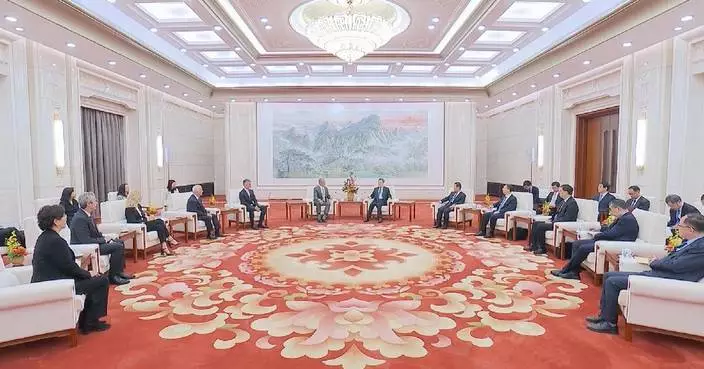
Chinese vice premier meets Disney CEO
- Erenhot port in north China handles over 15,000 China-Europe freight trains in 5 years
- China, Africa to stage 600 cultural exchange events in 2026
- Bulgarians divided on euro adoption amid geopolitical uncertainty in Europe
- Chinese film IPs drive export of co-branded products
- 5th Chinese peacekeeping military utility helicopter unit returns from Abyei in northern Africa
- Research report on Japan's nuclear ambitions released in Beijing
- China expresses condolences over former Japanese ambassador's passing: spokesperson
- China’s southern theater command kicks off new year training
- Young Chinese filmmaker shares unique experience of chasing storms across country
Category · News

Hennepin County prosecutor calls on the public to share Renee Good shooting evidence with her office

Trump meets with oil executives at the White House on Friday, seeking investments in Venezuela

Ivory Coast teen Yan Diomande unfazed by 100-million transfer speculation

Senegal edges 10-man Mali to book Africa Cup semifinal

Wall Street rises toward records following mixed data on the job market

Some flu measures decline, but it's not clear this severe season has peaked

The Latest: Minnesota prosecutor asks public to share Renee Good shooting evidence with her office

Newsom faces another multibillion-dollar budget shortfall in his last year as California governor

The Latest: US military says its forces intercept another sanctioned oil tanker in the Caribbean

A use-of-force review board clears the officer who fatally shot Ta'Kiya Young and her unborn child

Swiss bar owner put in pre-trial detention over the fatal fire at an Alpine resort

Kelly Curtis finishes second in World Cup skeleton race, enhancing her hopes of US Olympic spot

Packers' Trevon Diggs wants to make the most of his unexpected playoff opportunity

Minneapolis schools will offer remote learning amid federal immigration enforcement

Judge dismisses Salt-N-Pepa's lawsuit to reclaim master recordings from Universal Music Group

Israeli strikes kill at least 13 across Gaza, as Trump is expected to announce Board of Peace

Federal officers are leaving Louisiana immigration crackdown for Minneapolis, documents show

US sends delegation to Venezuela in first step toward restoring relations after Maduro's capture

NFL teams with coach vacancies often seek out young, rising coordinators. Here are some on the radar

Trump pick for Gaza board Nickolay Mladenov frequently worked to ease Mideast tensions

Photos of Syrians fleeing violence in Aleppo

California homeowner rolls out 'unwelcome' mat for black bear living under his house

ApexVision Debuts at CES 2026: Guide Sensmart Ushers in the Ultra-Clarity Era of Thermal Imaging

Liberty football coach Jamey Chadwell recovering from surgery for serious medical condition
EU, Finnish officials express concerns over US remarks on Greenland

US intercepts fifth sanctioned tanker as it exerts control over Venezuelan oil distribution

Vivek Ramaswamy's family bodyguard arrested on drug trafficking charges

After Venezuela frees fewer than 1% of prisoners, activists try to stay hopeful

Italy gives key support to EU trade deal with South American nations

Rapper Fetty Wap released from prison early in drug trafficking case

Russia uses its new ballistic missile in a major attack on Ukraine and a warning to West

What to know about restrictions on state use of money for child care and other social services

Iran supreme leader signals upcoming crackdown on protesters 'ruining their own streets' for Trump

The transfer portal era and pursuit of NIL money is messy. Are there solutions?

Sluggish hiring closes out a frustrating year for job seekers though unemployment slips to 4.4%

Advance Auto Parts Names OSRAM Sylvania Inc. Global 2025 Vendor Partner of the Year

TCL Earns Multiple CES 2026 Awards for Breakthrough Innovations Across TV, Mobile, and Smart Home Categories

Luigi Mangione in court as he fights to block death penalty, murder charge and key evidence
China’s 2026 consumption season fuels holiday shopping boom nationwide

INVESTOR ALERT: Faruqi & Faruqi, LLP Investigates Claims on Behalf of Investors of Aquestive Therapeutics

ICE officer who shot Renee Good in Minneapolis has served decades in military and law enforcement

Iran's exiled crown prince rises as a figure in protests, decades after leaving his homeland

FACT FOCUS: Minneapolis shooting prompts spread of misrepresented and fabricated images online

GM hit with $6 billion in charges as EV incentives cut and emissions standards fade

Meta lines up massive supply of nuclear power to energize AI data centers

Jon-Eric Sullivan finalizing deal to become Miami Dolphins GM, AP source says

Darts phenom Luke Littler signs sponsorship deal worth a reported $27M

Photos show snow and ice hitting parts of Europe

Hong Kong Film Festival Launches in Copenhagen, Showcasing Local Cinema and Cultural Exchange.

Syria announces ceasefire in Aleppo after days of clashes with Kurdish fighters

Guide Sensmart Showcases Groundbreaking ApexVision Technology at CES 2026

Two top-division soccer games in Germany called off amid heavy snow

Italy's Meloni rules out US military move on Greenland and urges stronger NATO role in Arctic
Venezuela's acting president says country not "subjugated" after U.S. assault
Over 200,000 Macao, HK vehicles registered for direct travel to mainland

Winter storm slams UK and France as cold snap spreads across Europe

Why boosting production of Venezuela's 'very dense, very sloppy' oil could harm the environment

As Trump promises Venezuelan renaissance, locals struggle with crumbling economy

Nigeria dealing with reports of unpaid bonuses and Osimhen spat before facing Algeria in Africa Cup

FINAL DEADLINE ALERT: Faruqi & Faruqi Reminds Telix Investors of the Pending Class Action Lawsuit with a Lead Plaintiff Deadline of January 9, 2026

Maxim Naumov's emotional return to US Figure Skating Championships after parents' tragic death

US will provide $45 million in aid to Thailand and Cambodia in a bid to ensure regional stability

Health Authorities Investigate Food Poisoning Linked to School Lunches Affecting 39 Students in Two Primary Schools.

Russia just used its new hypersonic missile again in Ukraine. Here's what to know about the Oreshnik

WNBPA and WNBA will not extend CBA deadline; sides will continue to negotiate 'in good faith'
Lebanon residents say Israeli airstrikes are destroying their lives

Visiting EU leaders pledge to support Syria's recovery after years of civil war

Sabalenka flips the outcome with a straight-sets win over Keys in Australian Open tuneup
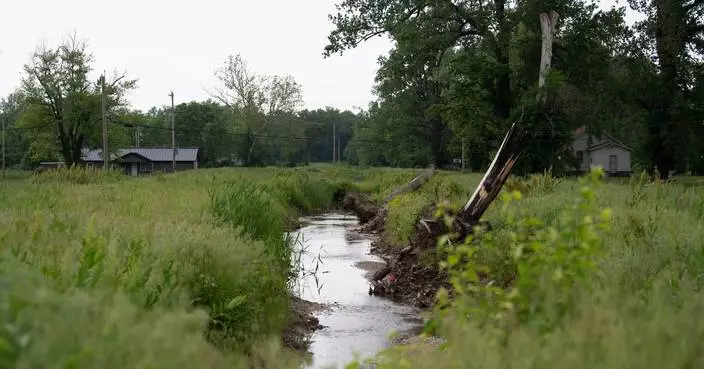
Takeaways from AP reporting on Trump administration cuts affecting US water systems

Poor communities threatened by aging sewers see crucial aid slashed under Trump

Poland advances to face US in the semifinals of the United Cup
CMG unveils 2026 flagship drama lineup

Jalen Hurts' resilience and big-game prowess to be tested in NFC wild card game

SOLUM to Unveil Future Vision for Smart Retail at NRF 2026: ‘Empowering Offline Stores through Data Synergy’

Glenmede Appoints Joe Coconate as Florida Regional Director
Chinese robot makers gain global attention at top tech show in Las Vegas
AI listings boost Hong Kong market as Tokyo stocks rally on earnings: analyst

Pope to visit Spain this year, with stops in Madrid, Barcelona and Canary Islands, cardinal says

Burton Riders Debut 'From Burton to the World' Collection in Aspen & Laax
2026 Beijing Book Fair opens

UN rights office cites 'widespread repression' in Uganda before next week's presidential election

Musk's Grok chatbot restricts image generation after global backlash to sexualized deepfakes

Real Chemistry Establishes RC Resolve, an Advisory Practice for Healthcare’s Most Critical Business, Regulatory and Value Inflection Points

Man City signs Semenyo from Bournemouth in reported $87M deal



